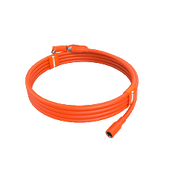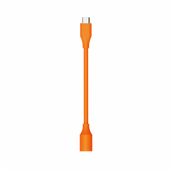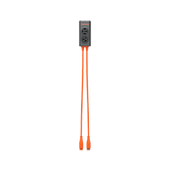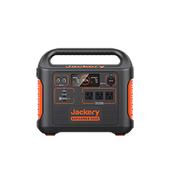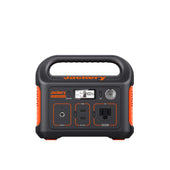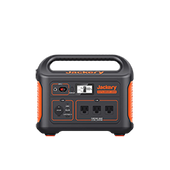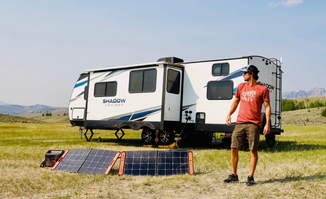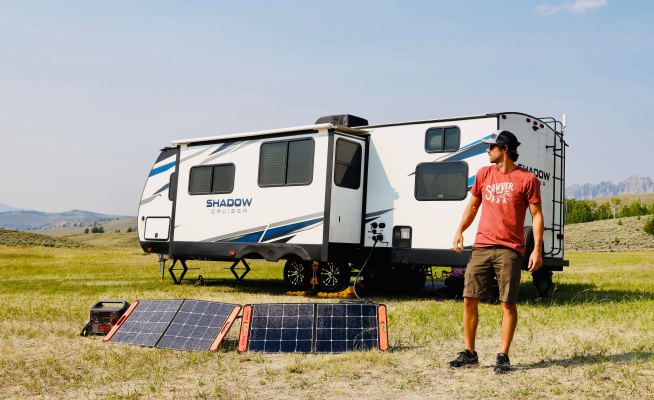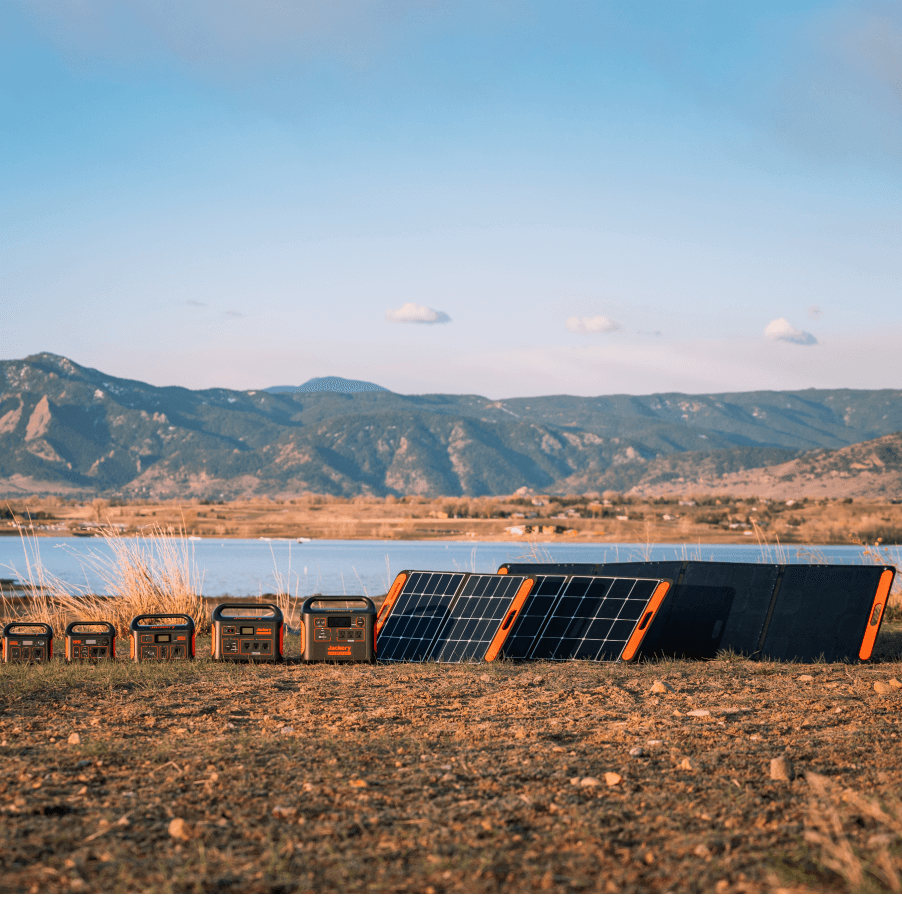Solar energy is the third most utilized renewable source of power in the world.[1] Considering the incredible benefits of solar energy, more and more eco-conscious Canadians are turning towards this renewable source of energy to meet their day-to-day electricity needs.
Canada has beautiful summers with respectable hours of sunshine throughout the year, but does it have an ideal environment for installing a solar battery charger, like a Jackery solar power generator? Is a battery backup station worth the investment in Canada?
By analyzing the pros and cons of a solar charger, this article will help you understand if solar-powered battery chargers are suitable for the unique climate of Canada.
Solar Battery Chargers: A Comprehensive Guide
Solar energy offers numerous benefits to its users. A reliable solar charger can power small devices, vehicles, and even your home during a power outbreak. But how do solar-powered battery chargers work, and how can they benefit you in the long run? Let's discuss it!
1. What Is A Solar Battery Charger?
A solar battery charger is a power device that helps capture energy from sunlight and convert it into electricity. These chargers are equipped with solar panels (composed of photovoltaic (PV) cells) that trap energy from the sun and transform it into usable electrical energy. This process is known as the photovoltaic effect.
2. How Does A Solar Battery Charger Work?
Solar battery chargers have solar panels or PV cell blocks that capture the sunlight. As sunlight hits the PV cells, it excites the electrons and creates an electric current. This current is called the direct current (DC), which is then transformed into the usable alternating current (AC) by the inverter. The electricity produced can also be distributed to an energy storage system for future use. Please note that the efficiency of the charger depends on several factors, including the size, the system component efficiency, and the amount of sunlight available.
3. Types of Solar Battery Chargers
Some common types of solar panel battery chargers available in the market include the following:
-
Solar Battery Chargers for Electric Appliances
- For Small Devices: A low- or medium-capacity solar-powered battery charger, like a solar phone charger, is a compact and portable device used for charging small gears like mobile phones, tablets, and cameras. They are usually small, lightweight, and easy to carry around, making them ideal for situations like a day hike or camping night. Small chargers that are equipped with batteries can store surplus energy, ensuring your devices remain charged even when the sun is out of sight!
- For Bigger Appliances: Solar panel battery chargers with increased power-generating capacity can efficiently support large energy-consuming appliances. They can power home electronics such as televisions, refrigerators, and even air conditioners without crashing or overloading. These systems are typically larger and have batteries for storing excess energy, making them highly suitable for residential and commercial use.
- Solar Chargers for Vehicles
Solar panel battery chargers are also widely used for vehicles like electric cars, RVs, and boats. For example, a solar boat battery charger is designed to energize the marine vehicle with a consistent and reliable power supply. It allows boats to remain operational without relying on traditional fuel. These chargers are ideal for off-grid adventures, offering a renewable solution for keeping electric vehicles charged and ready for use.
4. Application Scenarios of Solar Battery Chargers
Solar panel battery chargers can be used in a variety of scenarios. Here are some popular applications:
- Camping and Outdoor Activities
When it's time to explore the rough roads and off-grid areas of the country, a solar battery charger is vital to enjoy comfort and convenience. It provides sufficient electricity for all camping, cooking, and entertainment equipment. Campers can charge their communication, navigation, and entertainment devices even in the most remote locations of the country.
A solar panel battery charger can also provide energy for portable lights, coolers, and small electronics, allowing campers to experience home comforts in the Rocky Mountains of Canada. It is especially useful for eco-conscious campers who would like to minimize their carbon footprints while enjoying the beauty of nature.
Moreover, if you love fishing and own an electric boat, a solar boat battery charger can also enhance your boating experience. It helps maintain the boat battery and can also power onboard electronics and smaller systems. With a reliable solar generator, you can enjoy the calm and serenity of the sea without any worry.
- Road Trips
A solar panel battery charger is a game changer for long road trips, especially for those driving electric cars or RVs. It provides a reliable energy source for different electric appliances on the vehicle without worrying about running out of the vehicle's battery power. This is especially useful when exploring off-grid destinations or remote regions where traditional power sources are hard to find. You get the freedom and confidence to travel further and explore the far-off corners of the country without any worries.
- Home Power Backup
Solar-powered battery chargers are excellent for home use. They are equipped with a battery backup system that allows homeowners to reduce their dependence on the traditional grid and support the home in case of a power outage or during peak hours. Using a solar power backup system, homeowners can keep their essential devices up and running. Besides offering a sustainable power generation solution, solar generators also help homeowners save money on their utility bills.
- Remote Working or Studying
Remote work and studying have become the new norm, which is why people need portable energy solutions to power their essential devices. A solar battery charger is an ideal solution for such situations.
Solar generators offer an eco-friendly way to stay powered up while working or studying from a remote destination. Whether in a park, at a beach, or in a remote cabin, a small solar power system can keep your laptop, phone, and other devices running smoothly without needing a traditional power source.
Are Solar Battery Chargers Worth The Investment?
Is it wise to invest in a solar-powered battery charger? Analyzing the pros and cons of a solar power generator will help you make an informed decision.
1. Advantages of Solar Battery Chargers
- Clean Energy: A solar battery charger harnesses energy directly from the sun. Different from conventional generators that rely on fossil fuels, solar chargers produce zero emissions, enabling users to reduce their carbon footprint and do good for the planet without compromising modern comforts. A solar-powered battery charger ensures that you contribute to sustainability by tapping into an endless and eco-friendly energy source.
- Quiet Operation: Another key benefit of solar-powered battery chargers is their quiet operation. Conventional fuel-based generators produce loud, boisterous noise. Compared to traditional generators, solar-powered battery chargers are preferred for their quiet, noise-free operation. This feature makes them an excellent choice for camping trips, home use, or commercial spaces, where noise pollution could be a concern.
- Long-Term Savings: The upfront expense of purchasing and installing a solar battery charger is quite high. But the long-term savings are incredibly significant. Once installed, the energy generated from sunlight is entirely free. Additionally, pairing a solar charger with a battery storage system allows users to store excess power for later use, such as during night or peak hours. This leads to low utility bills, making it a super cost-effective solution in the long run.
- Low Maintenance Needs: Solar battery chargers require minimal maintenance. Solar panels and other system components have no moving parts, which reduces wear and tear. Moreover, these systems require minimal cleaning and maintenance to ensure maximum efficiency. This makes solar chargers a convenient and hassle-free power solution for long-term use.
2. Disadvantages of Solar Battery Chargers
- High Initial Investment:
The biggest drawback of solar-powered battery chargers could be the high initial expense. The total price for the solar panels, the battery storage system, and other necessary accessories can be pretty high.
However, it is promising that these costs can be offset by the accumulation of long-term energy savings and potential government incentives or rebates for renewable energy installations.
- Weather Dependence:
Another limitation of solar battery chargers is their dependence on sunlight. A solar battery charger cannot perform super efficiently in regions with frequent clouds or prolonged winters.
However, Canada has great potential for solar generators. For instance, the Prairie provinces stand out as Canada's solar energy leaders. Take Regina in Saskatchewan as an example. It is blessed with 1,815 hours of optimal sunlight each year.[2]
Jackery Solar Battery Chargers: Portable Power Solutions in Canada
Jackery focuses on developing portable solar-powered chargers for both small devices and larger appliances. For now, we have delivered 4 million units for powering different scenarios, including camping, RV trips, off-grid living, and home power backup.
If you find the solar charger an attractive idea, you are highly recommended to explore Jackery. Here, let's explain what our solar-powered battery chargers can do with two of our popular models.
1. For Small Devices: Jackery Solar Generator 300 Plus
 The Jackery Solar Generator 300 Plus is a compact and lightweight power generator designed for charging small devices while on the go. At about 11 lbs, it is easy to carry and transport. The generator's portable design makes it perfect for short-term outdoor activities like day trips, camping, and hiking.
The Jackery Solar Generator 300 Plus is a compact and lightweight power generator designed for charging small devices while on the go. At about 11 lbs, it is easy to carry and transport. The generator's portable design makes it perfect for short-term outdoor activities like day trips, camping, and hiking.
The solar generator features a foldable, book-sized 40W solar panel. The compact size of the power station and the panel allow it to fit neatly into your backpack. Moreover, this generator offers a 288Wh capacity and a 300W output, providing enough power for essential devices like smartphones, cameras, tablets, and even some small electronics.
One of its standout features is its ultra-fast charging capability, which allows the generator to be fully charged in just 4 hours. Better, the Jackery Solar Generator 300 Plus supports multiple charging options, including wall charging (1.35 hours to 80%), car charging (4.3 hours to 80%), and USB-C charging (2.8 hours to 80%), making it a versatile option in diverse scenarios.
2. For Bigger Appliances: Jackery Solar Generator 2000 Plus

The Jackery Solar Generator 2000 Plus is a powerful, versatile, and easily portable power solution for home use and outdoor adventures. It is designed for those who need to power larger appliances or require off-grid living solutions.
It offers a massive 2 kWh capacity that can be expanded up to 24 kWh by adding 5 battery packs. The enormous capacity of the generator is ideal for powering heavy-duty devices like refrigerators, air conditioners, and even medical equipment. With the ability to power devices up to 6000W, this generator delivers exceptional performance, making it a dependable source of energy for high-demand appliances.
Equipped with Advanced IBC Technology, the Jackery Solar Generator 2000 Plus offers ultra-fast solar charging. When paired with six Jackery SolarSaga 100W solar panels, the generator can achieve a full charge in just 6 hours.
Besides solar charging, it supports wall charging (2 hours) and car charging (25 hours), providing multiple charging options for added convenience. Whether you are preparing for an extended off-grid trip or need a dependable backup power supply during outages, the Jackery Solar Generator 2000 Plus is a long-term investment in energy independence and sustainability.
FAQs about Solar-Powered Battery Chargers
Q1: Does The Snow Interrupt the Function of The Solar Battery Charger?
Yes, heavy snowfall can reduce the efficiency of a solar panel battery charger by covering the panels and blocking sunlight. However, panels can still generate electricity in cold, clear weather. Generally, snow tends to fall off or melt from solar panels. Sometimes, you may need to clear snow from your panels with proper tools, like a soft brush.
Q2: How to Choose High-Quality Solar Components for Reliable Performance in Diverse Conditions?
Look for solar components with advanced technologies, such as monocrystalline panels, MPPT charge controllers, and weather-resistant materials. These ensure better efficiency and durability of the system, allowing it to withstand Canada's unique climate.
Q3: Is It Worthwhile to Invest in A Solar Battery Charger in Toronto?
Yes, investing in a solar panel battery charger in Toronto is worthwhile. Toronto receives ample sunlight, and it is estimated to have a shorter solar payback period.[2] Despite its cold winters, solar energy can still be harnessed effectively, especially with the right battery storage.
Q4: How Long Does A Solar Battery Charger Last? What Can I Do to Maximize Its Performance and Lifespan?
Depending on the model, a solar charger typically lasts 10 to 25 years. To maximize performance, you should keep the solar panels clean and avoid placing them in shaded areas. Make sure the battery is properly maintained, and use a charge controller to prevent overcharging. Regular inspections can also extend the system's lifespan.
Conclusion:
Sunlight not only provides us with warm days but also helps generate electricity. As people realize its benefits, the use of solar battery chargers is becoming increasingly common in Canada. If you are looking for a reliable solar power system for home, office, or outdoor use, feel free to check out Jackery Canada's line of solar generators. They are designed to deliver satisfying performance with leading features!
Reference Links:
[1] IEA/2023, "Solar PV". Available at: https://www.iea.org/energy-system/renewables/solar-pv (Accessed on October 10, 2024)
[2] Radio-Canada/2024, "What if Canada invested in solar energy?". Available at: https://ici.radio-canada.ca/info/2024/potentiel-panneaux-electricite-energie-solaire-canada/en/ (Accessed on October 10, 2024)
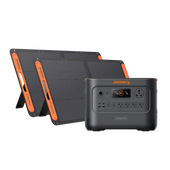


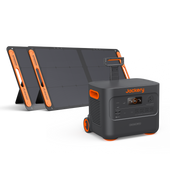


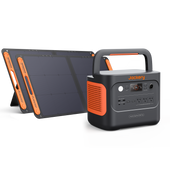

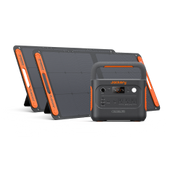
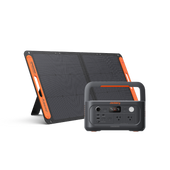
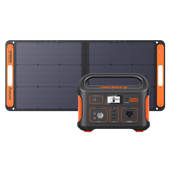
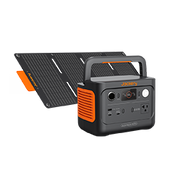
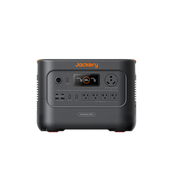

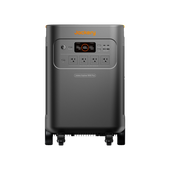
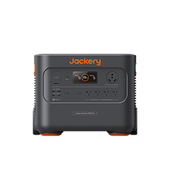
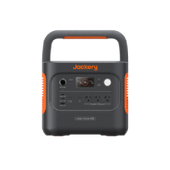
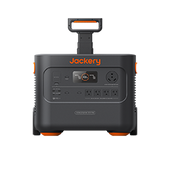
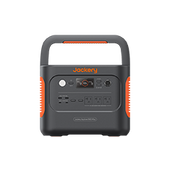
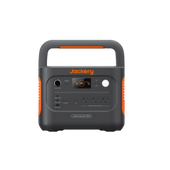
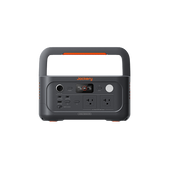
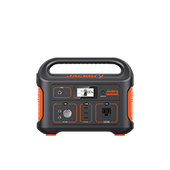
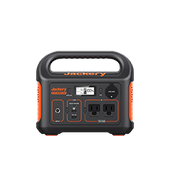
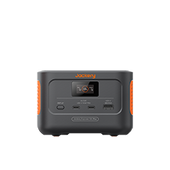
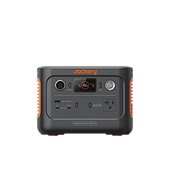
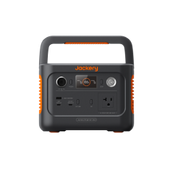
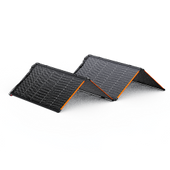
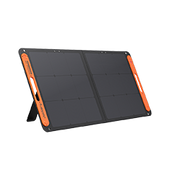
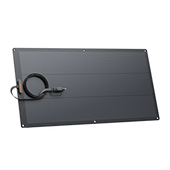
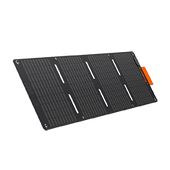
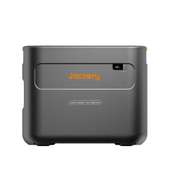
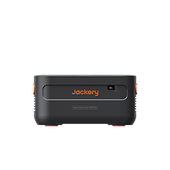
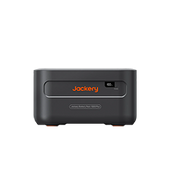
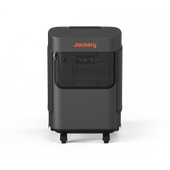



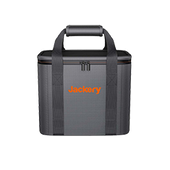
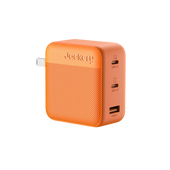
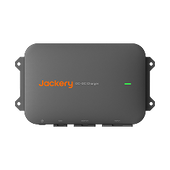
![[Add-on] Jackery Manual Transfer Switch for Explorer 5000 Plus](http://ca.jackery.com/cdn/shop/files/add-on-jackery-manual-transfer-switch-for-5000-plus-240V.webp?v=1757043692&width=170)
